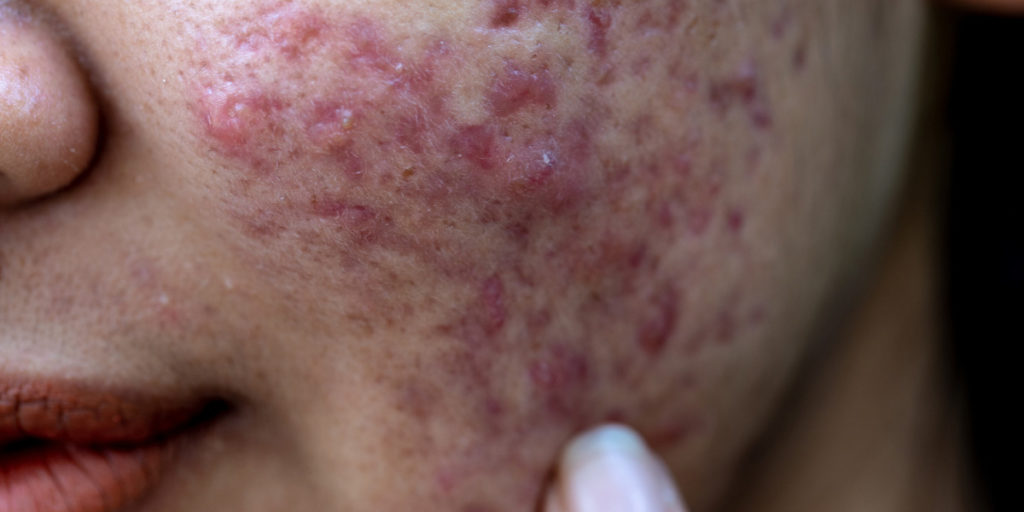Meth Addiction and Abuse

Overshadowing even cocaine and Adderall in potency and popularity, methamphetamine, or meth, is one of the most highly addictive substances available.
Because there are so many ways to make meth, it’s easy and cheap to get, contributing to the recent, widespread meth use crisis throughout the United States and the world.
This addictive stimulant has been illegal in America since the 1970s. And due to its incredibly high potential for abuse, it only has one legal, medical use. Desoxyn is an oral prescription medication containing methamphetamine to treat attention deficit hyperactivity disorder (ADHD).
Meth can have different colors and textures, depending on who made it, but all mixtures have common ingredients. Crystal meth is a solid form of meth typically smoked and gets its name from its appearance of crystal or glass-like rocks.
People who struggle with substance abuse are at an extremely high risk of becoming addicted to meth because of its quick, intense high, especially the first time someone takes it. Additionally, the first time people use meth, they typically mix it with other drugs and alcohol to enhance their high, unaware of how addictive it is.
Meth Addiction Symptoms
Use becomes abuse when you are physically and mentally dependent on a drug. However, typically people don’t realize when they cross the line from using to addiction, and it does not take long for users to start abusing meth.
Addiction can happen quickly with any drug, and meth is one of the most dangerous because of how fast people get hooked. Knowing what meth addiction looks like can help users and their loved ones recognize it and intervene to get help.
Meth users can show both mental and physical signs of addiction. Some symptoms will appear as soon as the drug kicks in, and some will appear after repeated or long-term use.
Some physical signs of meth addiction include:
- Rapid eye movement
- Dilated pupils
- Twitching or facial ticks
- Jerky movements
- Jaw clenching
- Teeth grinding
- Rapid heart rate
- Burns around the mouth, lips, and fingers
- Needle marks near veins
- Skin sores or signs of picking at scabs and wounds
- Tooth decay
- Sudden and extreme weight loss

Because meth can cause damage to the brain, there are mental and behavioral side effects, including:
- Reduced appetite
- Agitation
- Hyperactivity
- Outbursts and mood swings
- Violent behavior
- Paranoia
- Insomnia
- Unpredictable sleeping patterns
- Being awake for days on end
How Addictive Is Meth?
Meth is one of the most addictive drugs and requires higher doses each time the user chases a high.
Methamphetamine users say they quickly feel an overwhelming rush of happiness and motivation after taking their first hit; each hit after that is to maintain or recapture that feeling.
Additionally, the ways people use meth, swallowing, snorting, smoking, or injecting are directly related to how the effects of meth will kick in— increasing the risk of addiction.
In the world, meth abuse ranks second only to cannabis. Worldwide 52 million people have admitted to using methamphetamines at least once in the past year.
Crystal Meth Addiction
Crystal meth is a highly addictive drug that can cause addiction even after one use. In the United States, crystal meth addiction has become an epidemic and is now one of the leading causes of overdoses and death.
Why Is Crystal Meth Becoming So Popular?
Crystal meth is not a new drug, but its rise in popularity is more recent. Crystal meth use has become so popular because it is the purest and most potent form of methamphetamine.
According to the Drug Enforcement Agency (DEA), Mexican drug trafficking organizations are the leading manufacturers and distributors of meth and crystal meth throughout the United States. But, homemade, small-scale labs also contribute to the production of meth.
“Cooking” operations usually occur in more rural, less policed areas, making it difficult to find them to stop production. When a lab is busted, setting up a new one in a different location doesn’t take much time or money, so production stays consistent.
When you combine outside manufacturers, small-scale local sources, and low prices, crystal meth is widely available and easy to get, making it incredibly popular among users.

Why Do People Use Meth?
Some of the most common reasons people use meth include:
- Euphoria
- Increased excitement and motivation
- A longer-lasting high than other stimulants
- Help with weight loss
- Increased sexual drive and performance
- Self-medication
- Ability to stay awake for long periods
Additionally, because meth affects different areas of the brain and the central nervous system, it has various effects that make people want to use it.
What Are the Long-Term Effects of Meth Misuse?
According to the National Institute on Drug Abuse (NIDA), long-term methamphetamine use can lead to effects including physical and mental health problems. Since meth is one of the most physically destructive drugs, the physical signs of long-term meth addiction are easy to recognize.
Long-term effects of methamphetamine misuse involve:
- Rotted, burnt, or missing teeth, also known as meth mouth
- Sagging or drooping skin
- Facial scarring and open sores
- Constantly having a cold or illness
- Wounds take a long time to heal
- Chronic nose bleeds
- Collapsed veins
- Infections around injection sites
- Impotence
- Nerve damage
- Inability to feel pleasure
- Liver damage
- Heart damage
- Heart attack
- High body temperature
- Pregnancy complications
- Thin and frail-looking body
- Malnutrition
- Anorexia
- Seizures

Meth is capable of changing the structure of the brain and the way it works. Using meth long-term can change, cause, or worsen pre-existing mental illness and cause neurological side effects and personality changes.
Long-term psychological effects of meth use include:
- Intense cravings
- Anxiety
- Insomnia
- Fatigue
- Depression
- Extreme paranoia
- Violent outbursts
- Psychotic symptoms like hallucinations and delusions
- Suicidal or homicidal thoughts
- Memory loss
- Loss of coordination
Meth Addiction Treatment
As meth addiction and overdoses continue to rise, the need for ways to treat both is an increasing concern. There are ongoing efforts to explore everything from drug vaccines and brain mapping to combining therapies and medications as ways to treat meth addiction.
Unfortunately, despite some successful clinical trials with medications used to treat other addictions, nothing has proven effective in treating most people with meth addiction. Medical research to help treat meth addiction and withdrawal symptoms is ongoing.
Scientists are still working to understand the unique way meth interacts with the brain to make it addictive and challenging to quit. Researchers recently discovered a gene that affects how the brain receives meth and hope to explore more ways to treat addiction.
The good news is that studies show after being drug-free and seeking help at an addiction treatment facility, most documented symptoms will disappear or reverse themselves.
Meth Addiction Recovery
There are a lot of stigmas, jokes, and misconceptions about meth addiction. Everyone has seen the side-by-side mug shots and heard jokes about “tweakers” and trailer parks. It’s easy to think that only a tiny, specific portion of the population uses meth, but that’s simply not true. At Northridge Addiction Treatment Center, we understand addiction is a disease that can affect anyone of any background or social status.
Our compassionate and licensed medical staff have been through their own recovery transformations, eliminating shame and guilt from treatment. They collaborate with each resident to develop an effective, personalized, and achievable plan to treat your addiction.
NATC uses scientifically proven, evidence-based treatments like cognitive behavioral therapy to reframe how you think about addiction and recovery and develop good habits to ensure success. Group therapy and support groups help you realize you are not alone and provide encouragement during your journey.
At NATC, we firmly believe that every life is full of hope and potential— everyone can beat addiction, no matter how bad things seem.
Our admissions experts will happily answer any questions you might have about taking the first steps towards a lasting and complete recovery. You don’t have to face this all on your own. Reach out today.
Find Meaningful Recovery
Our caring and compassionate specialists are eager to help you comfortably navigate this journey to recovery. Our individualized treatment plan, programs, and therapies may be a perfect match for you or your loved one. Let us assist you in living the happy life you deserve. It starts with a phone call.




